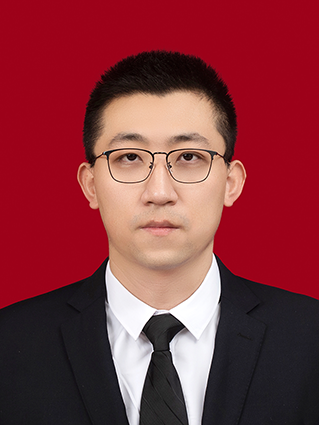Invited Speaker

Prof. Dr. Chao Zhang
Institute of Intelligent Information Processing, Shanxi University, ChinaSpeech Title: Multi-Granularity Group Consensus Modeling and Applications in the Context of Digital Intelligence
Abstract: In the context of digital intelligence, interactions among intelligent agents are becoming increasingly complex, and the issue of information asymmetry is intensifying. Traditional group consensus methods struggle to address the challenges posed by highly dynamic, multi-source, and large-scale decision-making scenarios. Inspired by granular computing, multi-granularity computing technologies provide a new theoretical framework and implementation pathway for group consensus decision-making in complex environments by identifying decision-making patterns at different levels and formulating differentiated consensus strategies. This report focuses on multi-granularity group consensus modeling and its applications. First, for group consensus under incomplete multi-scale information systems, a social network-driven three-way group consensus method is constructed to achieve the multi-granularity classification of agents and the formulation of differentiated strategies. Second, for group consensus in online review scenarios, the attribute weights are determined based on graph convolutional networks, and a conflict degree-driven two-stage quantum consensus-reaching process is further designed. Third, for group consensus in multi-modal data scenarios, an artificial intelligence-generated content and optimization-driven overlapping community detection method is proposed to support group consensus achievement. Finally, the aforementioned theoretical models are applied to the construction of domain-adapted large language models to validate their effectiveness and scalability in various practical applications.
Biography: Dr. Chao Zhang is a Professor at the Institute of Intelligent Information Processing, Shanxi University, China. With a primary focus on data mining, machine learning, granular computing, and intelligent decision-making, he has made significant contributions to the field. Over the years, he has authored over 80 papers published in reputable journals such as IEEE Transactions on Computational Social Systems, IEEE Transactions on Fuzzy Systems, and IEEE Transactions on Consumer Electronics. His work has been recognized with numerous awards, including the first prize for Outstanding Achievements in Scientific Research in Institutions of Higher Learning in Shanxi Province, the second prize for Outstanding Achievement Award in Social Sciences in Shanxi Province, and the ACM Excellent Doctoral Dissertation Award in Taiyuan Chapter, and being listed among the World's Top 2% of the Most-cited Scientists 2024 by Stanford University. Additionally, he has an H-index of 24, further highlighting the impact of his research. He has also been the principal investigator for seven projects sponsored by the National Natural Science Foundation of China and other funding sources, demonstrating his leadership in driving research forward.
In addition to his research, Prof. Zhang has authored three academic monographs, holds two national invention patents, and serves on the editorial boards of several journals, including Computational Intelligence and International Journal of Cognitive Computing in Engineering. He is an active member of the academic community, having contributed as a reviewer for numerous journals, such as IEEE TKDE, IEEE/CAA JAS and as a Program Committee member for various conferences, such as International Conference on Neural Information Processing (ICONIP). His dedication to fostering interdisciplinary innovation in artificial intelligence and data science has earned him recognition as a "Sanjin Talent", a Core Member of Science and Technology Innovation Teams of Shanxi Province, and the Wenying Young Scholars of Shanxi University.
